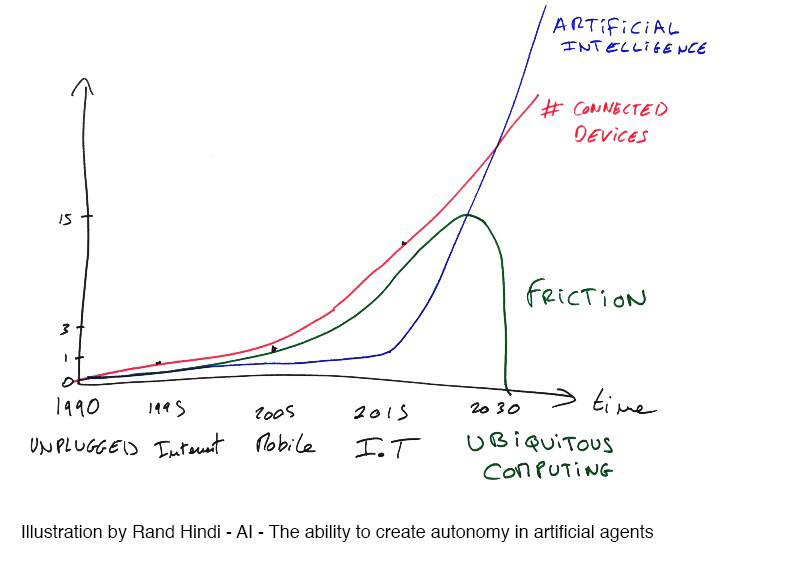How artificial intelligence will make technology disappear
A recording from a really interesting event and presentation about Artificial intelligence (AI the ability to create autonomy in artificial agents) what AI is (and isn’t), foster constructive conversations about how we might address real, pressing problems in education through innovative applications of smart technology, and host a debate focused on the hopes and fears related to AI in ed in the future.by Rand Hindi arranged by Pearson and the London Knowledge Lab who have teamed up to convene the teaching and research communities in a series of three events designed to explore artificial intelligence in the context of education. (Skip to 5:04 in the video timeline as the video has sound issue at the beginning of the recording)
This presentation is followed by questions and answered during a conversation between Dr Rose Luckin and Dr Benedict Du Boulay, two of the UK’s leading experts in AI and education. There's an interesting question about AI and creativity which I'd like to see UAL pick up on in our CCW Digital Learning Teaching & Enhancement work.
Read more about the Intelligence Unleashed: How smarter digital tools can improve learning event.
See a redacted transcript of a TEDx talk on the same topic by Rand Hindi April at Ecole Polytechnique in France. The video can be seen on Youtube here.
See an extract from a redacted transcript of a TEDx talk on the same topic by Rand Hindi April at Ecole Polytechnique in France:
Taking the connected devices curve, and subtracting the one for A.I., we see that the overall friction keeps increasing over the next few years until the point where A.I. becomes so capable that this friction flips around and quickly disappears. In this era, called “Ubiquitous Computing”, adding new connected devices does not add friction, it actually adds value!
 For example, our phones and computers will be smart enough to know where to route the notifications. Our cars will drive themselves, already knowing the destination. Our beds will be monitoring our sleep, and anticipating when we will be waking up so that we have freshly brewed coffee ready in the kitchen. It will also connect with the accelerometers in our phones and the electricity sockets to determine how many people are in the bed, and adjust accordingly. Our alarm clocks won’t need to be set; they will be connected to our calendars and beds to determine when we fell asleep and when we need to wake up.
For example, our phones and computers will be smart enough to know where to route the notifications. Our cars will drive themselves, already knowing the destination. Our beds will be monitoring our sleep, and anticipating when we will be waking up so that we have freshly brewed coffee ready in the kitchen. It will also connect with the accelerometers in our phones and the electricity sockets to determine how many people are in the bed, and adjust accordingly. Our alarm clocks won’t need to be set; they will be connected to our calendars and beds to determine when we fell asleep and when we need to wake up.




Comments
The WTF Economy by @timoreilly
https://medium.com/the-wtf-economy/the-wtf-economy-a3bd5f52ef00?source=tw-606358cb4cdb-1444903681295
why generation z are deleting their social media accounts and going offline
http://i-d.vice.com/en_gb/article/why-generation-z-are-deleting-their-social-media-accounts-and-going-offline?utm_source=vicefbus